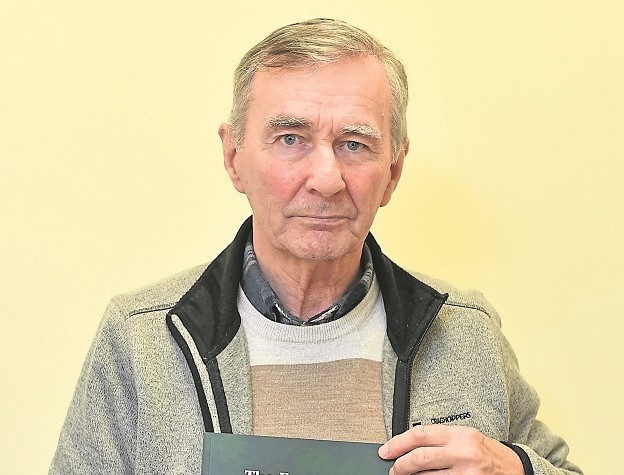A RETIRED teacher from Derrylea has published a book on the Fermanagh Civil Rights movement.
Dermot Maguire, 76, who was an Art teacher for 30 years in Belfast, was inspired to write the history of the campaign during the initial Covid lockdown period.
Documenting the period between 1969 to 1974, the book looks at the events that led up to the formation of the Civil Rights movement in Fermanagh up until the Sunningdale Agreement and the Ulster Worker’s Council strike.
The book “The Fermanagh Civil Rights Campaign In Its Wider Context: 1969-74” is officially being launched at Fermanagh House at 8pm on May 18.
“I was asked to write it when Covid started and that kept me going right through the lockdown,” said Dermot.
“Although the book cover states 1969-74, I’ve started it in 1921 following the partition of Ireland. The first two chapters are from that year all the way to 1962 when Terence O’Neill became Prime Minister.
“We then cover the years up to 1968 and the efforts to get reform.
“The Fermanagh Civil Rights Association didn’t start until February 1969. Terence O’Neill was having trouble trying to pass reforms – not just from Ian Paisley but from those within his own (Ulster Unionist) party.
“O’Neill called an election in 1969 which saw People’s Democracy (PD) put up candidates in each of the three constituencies that Fermanagh had at the time which brought to the fore, civil rights in the county.
“The Civil Rights movement here was formed just before that election. The first chairman was Robert Simpson who was a teacher at the Collegiate Grammar School as it was known then.
“Robert only lasted six weeks in that position partly because of some of the things that members of the PD were saying on platforms as the movement gradually became more nationalist.”
Dermot himself was in Fermanagh at the time and briefly got involved before being offered a place at a teacher training college in Belfast.
He added: “I wasn’t very involved. I attended three meetings in Fermanagh – I was working as an art teacher in Belfast from 1969 to 2000. I was only on the periphery of the PD for about three or four months.
“1970 saw the occupation of the County Council’s offices by protestors – some of them were arrested and put in jail for a while. Council houses were also occupied as well.
“Like the city of Derry and Co. Tyrone, Fermanagh was where the worst of the council discriminations were going on in relation to housing and jobs.
“Belfast had a Housing Trust not under that city’s council and there was not the opportunity for council discrimination. There were other exceptions too but Fermanagh Council – along with Tyrone and the city of Derry – were very bad.
“From the 1920s, the Council did away with proportional representation for elections – which had been in place to ensure a fairer vote result. The gerrymandering process that replaced it, did not.
“It was because of this and the discrimination it produced that made sure that the demand for civil rights didn’t come out of nothing.
“One of Fermanagh’s most prominent figures, Lord Brookeborough, did not help matters during his term as Prime Minister. I include his infamous quote about not employing Catholics in the book.
“Things did not improve under his term of office and we were quite browbeaten by that stage.
“You could make a case for anything with statistics but the figures in relation to housing and employment were so blatant here. There is no need for exaggeration when it comes to what was going on.
“Growing up in Fermanagh, I was fully aware of what was going on and how unfair things were. By the time I was 15, I was fairly politicised.”









